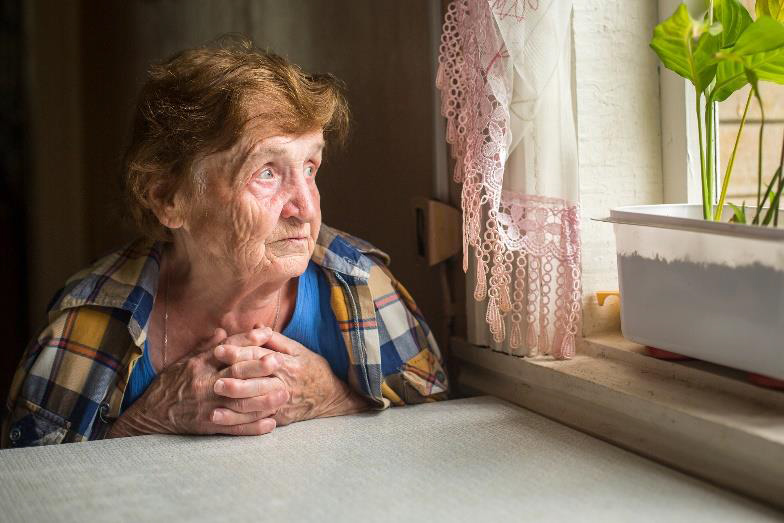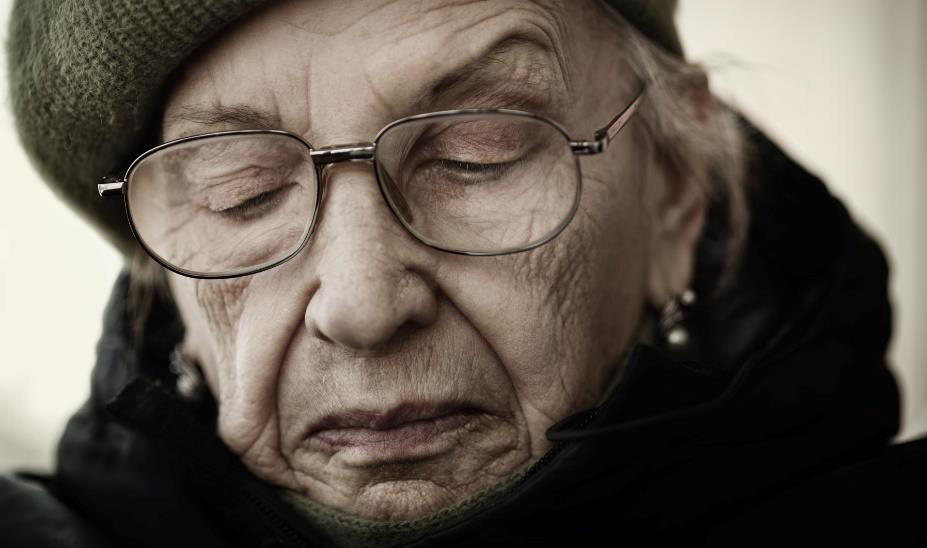 At present, most of us will probably agree that the situation we go through as a society, regarding the incidence and nature of covid-19 and the epidemiological measures taken against it, is unprecedented and extraordinary – with respect to the total number of patients and deaths, as well as with regard to nature of epidemiological measures, its duration and the impact on the whole society. For now, is not possible to find out what the long-term impact of the pandemic on mental health and “wellbeing” will look like, but in short term, the negative effect is already obvious. Early studies show an increase in anxiety disorders and depression in the whole population, and especially where is necessary to face long-term restrictions. [1, 2] For the elderly is the incidence of these disorders even more noticeable because of their even bigger isolation, higher risk of infection, higher probability of a worse course of the disease and even much bigger dependence on social support coming from their surroundings. [3] As “the most fragile among the fragile” we can consider the group of elderly people, who suffer from some form of cognitive dysfunctions such as dementia because their ability to understand the social context may be very limited. The effect is already obvious. Early studies show an increase in anxiety disorders and depression in the whole population, and especially where is necessary to face long-term restrictions. [1, 2] For the elderly is the incidence of these disorders even more noticeable because of their even bigger isolation, higher risk of infection, higher probability of a worse course of the disease and even much bigger dependence on social support coming from their surroundings. [3] As “the most fragile among the fragile” we can consider the group of elderly people, who suffer from some form of cognitive dysfunctions such as dementia, because their ability to understand the social context may be very limited. Circumstances that affect elderly care from a psychological point of view can be divided into several basic groups:1. The fact that the covid-19 is spread into the population and the perception of the risks from the point of view of specific senior;2. Epidemiological measures and their impact on a specific senior;3. Reactions of the relatives, caregivers and other people who care about the elderly.The fact that the covid-19 is spread into the population and the perception of the risks from the point of view of specific senior. Each of us has a completely different tolerance for stressful situations and also, we individually review protentional risks to our health or life. The general scheme of our reaction can be described as “fight or flight”. Of course, these principles also apply to the elderly. It’s very difficult to express one general, majority reaction that elderly is the main group of society which is the most affected by covid-19. Many of them have experienced difficult times (such as World War II, the post-war economic crisis, etc.), with often very tragic consequences to their lives. On the other hand, that’s something what make them very resilient to any of the similar crises. Of course, this is not true for all, but for many of them, yes.
At present, most of us will probably agree that the situation we go through as a society, regarding the incidence and nature of covid-19 and the epidemiological measures taken against it, is unprecedented and extraordinary – with respect to the total number of patients and deaths, as well as with regard to nature of epidemiological measures, its duration and the impact on the whole society. For now, is not possible to find out what the long-term impact of the pandemic on mental health and “wellbeing” will look like, but in short term, the negative effect is already obvious. Early studies show an increase in anxiety disorders and depression in the whole population, and especially where is necessary to face long-term restrictions. [1, 2] For the elderly is the incidence of these disorders even more noticeable because of their even bigger isolation, higher risk of infection, higher probability of a worse course of the disease and even much bigger dependence on social support coming from their surroundings. [3] As “the most fragile among the fragile” we can consider the group of elderly people, who suffer from some form of cognitive dysfunctions such as dementia because their ability to understand the social context may be very limited. The effect is already obvious. Early studies show an increase in anxiety disorders and depression in the whole population, and especially where is necessary to face long-term restrictions. [1, 2] For the elderly is the incidence of these disorders even more noticeable because of their even bigger isolation, higher risk of infection, higher probability of a worse course of the disease and even much bigger dependence on social support coming from their surroundings. [3] As “the most fragile among the fragile” we can consider the group of elderly people, who suffer from some form of cognitive dysfunctions such as dementia, because their ability to understand the social context may be very limited. Circumstances that affect elderly care from a psychological point of view can be divided into several basic groups:1. The fact that the covid-19 is spread into the population and the perception of the risks from the point of view of specific senior;2. Epidemiological measures and their impact on a specific senior;3. Reactions of the relatives, caregivers and other people who care about the elderly.The fact that the covid-19 is spread into the population and the perception of the risks from the point of view of specific senior. Each of us has a completely different tolerance for stressful situations and also, we individually review protentional risks to our health or life. The general scheme of our reaction can be described as “fight or flight”. Of course, these principles also apply to the elderly. It’s very difficult to express one general, majority reaction that elderly is the main group of society which is the most affected by covid-19. Many of them have experienced difficult times (such as World War II, the post-war economic crisis, etc.), with often very tragic consequences to their lives. On the other hand, that’s something what make them very resilient to any of the similar crises. Of course, this is not true for all, but for many of them, yes.
Epidemiological measures and their impact on a specific elderly
 Epidemiological measures and their impact on a specific elderly. In this group, we can also find a lot of differences in perception between individuals – especially it depends on if senior lives are completely alone at home, or if he/she lives with his/her relatives, or he/she is in institutional care. Certainly, the most vulnerable group are the elders who live completely alone. Elderly people with a lack of social interactions have a tendency to replace it watching TV or listening to the radio (with respect to time scope and nature of “covid” news), which can be itself trigger for anxiety and depressions. The risk of total social isolation is much lower when the senior lives with their relatives or in a social care facility. Reactions of the relatives, caregivers and other people who care about the elderly. Quarantine, social isolation, social distance, suppression of public activities, a ban on leaving home, travel restrictions, testing. How do these words affect you emotionally? If we accept the principles of general psychology, we will also have to accept the fact, that the emotions are infectious as well as covid-19. [4] The key is to realize that negative emotions are more infectious than positive ones. The way we look, the way we speak, the way we gesture, it all affects the feelings of who we speak with. As sooner as we aware this fact, it will be much easier to protect from the stressful experiences associated with covid-19 the one who deserve it the most – our seniors.
Epidemiological measures and their impact on a specific elderly. In this group, we can also find a lot of differences in perception between individuals – especially it depends on if senior lives are completely alone at home, or if he/she lives with his/her relatives, or he/she is in institutional care. Certainly, the most vulnerable group are the elders who live completely alone. Elderly people with a lack of social interactions have a tendency to replace it watching TV or listening to the radio (with respect to time scope and nature of “covid” news), which can be itself trigger for anxiety and depressions. The risk of total social isolation is much lower when the senior lives with their relatives or in a social care facility. Reactions of the relatives, caregivers and other people who care about the elderly. Quarantine, social isolation, social distance, suppression of public activities, a ban on leaving home, travel restrictions, testing. How do these words affect you emotionally? If we accept the principles of general psychology, we will also have to accept the fact, that the emotions are infectious as well as covid-19. [4] The key is to realize that negative emotions are more infectious than positive ones. The way we look, the way we speak, the way we gesture, it all affects the feelings of who we speak with. As sooner as we aware this fact, it will be much easier to protect from the stressful experiences associated with covid-19 the one who deserve it the most – our seniors.
References:
1. Ahmed MZ, Ahmed O, Aibao Z, Hanbin S, Siyu L, Ahmad A. Epidemic of COVID-19 in China and associated psychological problems. Asian J. Psychiatr. (2020) 51:102092.
2. Meda N, Pardini S, Slongo I, Bodini L, Rigobello P, Visioli F, et al. COVID-19 and depressive symptoms in students before and during the lockdown. MedRxiv (2020).
3. Yang Y, Li W, Zhang Q, Zhang L, Cheung T, Xiang YT. Mental health services for older adults in China during the COVID-19 outbreak. Lancet Psychiatr. (2020) 7:e19.
4. Weilenmann, S., Schnyder, U., Parkinson, B., Corda, C., von Känel, R., & Pfaltz, M. C. (2018). Emotion Transfer, Emotion Regulation, and Empathy-Related Processes in Physician-Patient Interactions and Their Association With Physician Well-Being: A Theoretical Model. Frontiers in psychiatry, 9, 389.







